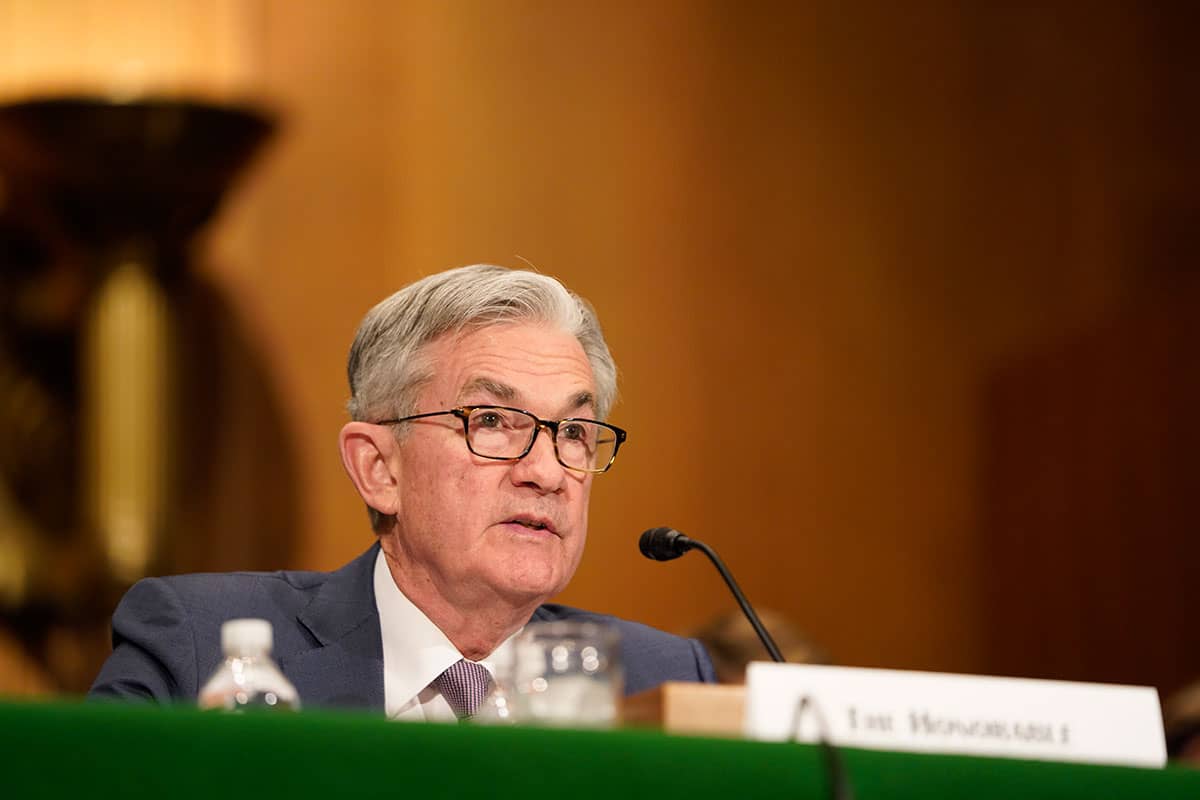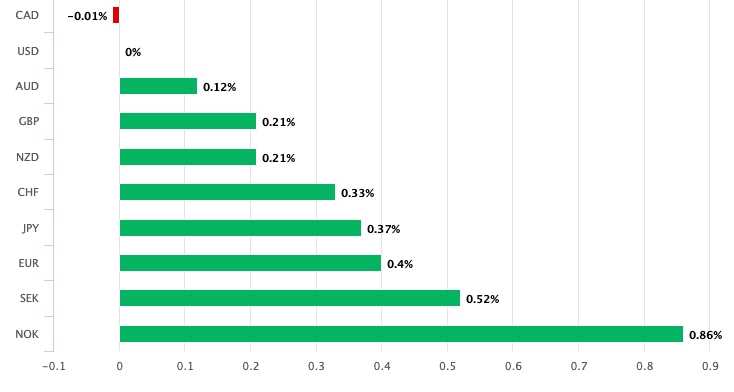Dollar Advances on Pound Sterling and Euro after Powell says Fed to Let Inflation Run Hot in the Future
- Fed to allow inflation to exceed 2% in future
- Should allow rates to stay lower for longer
- Mixed views as to what this means for USD

Above: Federal Reserve Chairman Jerome Powell. Image © Federal Reserve.
- GBP/EUR spot: 1.1198 | GBP/USD spot: 1.3181
- GBP/EUR bank rates: 1.0980 | GBP/USD bank rates: 1.2912
- GBP/EUR specialist rates: 1.1080 | GBP/USD specialist rates: 1.3062
Learn more about market beating exchange rates, here
The U.S. Dollar rallied against the Pound and Euro while stock markets eased back from recent highs after the Federal Reserve Chairman Jerome Powell announced the central bank had agreed a new set of policies aimed at supporting the economy and the labour market.
Addressing the Jackson Hole Symposium, Powell said the Fed will now target an average 2.0% rate of inflation while introducing an emphasis on broad and inclusive employment. The move to an average inflation rate implies that the Fed will not rush to raise interest rates in the future on signs inflation is heating up thereby putting a handbrake on the economy.
"In order to anchor longer-term inflation expectations at this level, the Committee seeks to achieve inflation that averages 2 percent over time, and therefore judges that, following periods when inflation has been running persistently below 2 percent, appropriate monetary policy will likely aim to achieve inflation moderately above 2 percent for some time," read a statement from the Federal Reserve, detailing the new policy.
Markets are reading the decision as a signal that the Fed will pursue a loose monetary policy of 'lower for longer' interest rates and generous quantitative easing, whereby it issues new money in order to buy government and corporate bonds.
"With the adoption of average inflation targeting and a move away from maximum employment as a prime influence on policy, Jerome Powell has signalled a seismic change in the Federal Reserve’s monetary policy strategy. When combined, the two changes add up to a significantly more dovish reaction function from the Fed, which is now far less likely to engage in preemptive rate hikes in response to anticipated increases in inflation," says Ranko Berich, Head of Market Analysis at Monex Europe.
This appears to be a 'dovish' development at the world's de facto central bank, i.e. the Fed is willing to throw money at the economy, therefore the typical reaction we might have expected was for the Dollar to go lower and stocks to go higher.
Instead, the Dollar is actually one of the better performing currencies on the day, advancing against all its peers in the wake of the event while stock markets are decidedly mixed.
The initial assessment we make based on this price action is that because the changes announced by the Fed today were well signposted the market got what they were expecting.
When market expectations are met in such a manner markets can act in a contrarian manner; we would imagine there is some profit taking underway.

Above: The USD advanced against its peers following Powell's Jackson Hole event
The Euro-to-Dollar exchange rate is down 0.40% at 1.18, the Pound-to-Dollar exchange rate is down 0.20% at 1.32, the Dollar-to-Yen is up 0.36% at 106.25.
The Pound, which has tended to show a positive relationship to investor sentiment is largely higher across the board suggesting the market retains an underlying bullish tone, even if gains are relatively sanguine: The Pound-to-Euro exchange rate is quoted at 1.1182.
Concerning the foreign exchange impact, Viraj Patel FX & Global Macro Strategist at Arkera says he doesn't see the policy shift as leading to sustainably weaker U.S. Dollar going forward, because other central banks such as the European Central Bank (ECB) and Bank of Japan (BoJ) will follow suit.
"Any USD weakness post-Jackson Hole could be short-lived. Instead, the drivers for a weaker USD today – only increases the odds for a stronger USD tomorrow," says Patel, citing three reasons for an expectation for the Dollar weakness to fade:
(1) the Fed winning the race to the bottom means any marginal monetary policy impulse will only help the US economy recover faster than its peers;
(2) In the absence of negative rates, Fed forward guidance innovations are largely priced into the US bond market; and
(3) whilst the Fed is leading the way here with AIT – other central banks (ECB and BoJ) will have to follow suit very soon.
“The Fed will keep interest rates at almost zero for the foreseeable future, possibly for more than five years, and it will take a more casual approach toward inflation, even championing a modest rise above their 2% target,” says Nigel Green, the CEO and founder of deVere Group. "This will add fuel to global equities which are already on fire, having hit a record high on Wednesday. In this climate, holding bonds and sitting on cash will simply not provide the returns investors seek."
The Dollar's inverse relationship with investor sentiment means it would be expected to come under pressure in such an environment.
The Pound and other currencies such as the Australian Dollar, which have a positive correlation with positive investor sentiment, would likely benefit.




